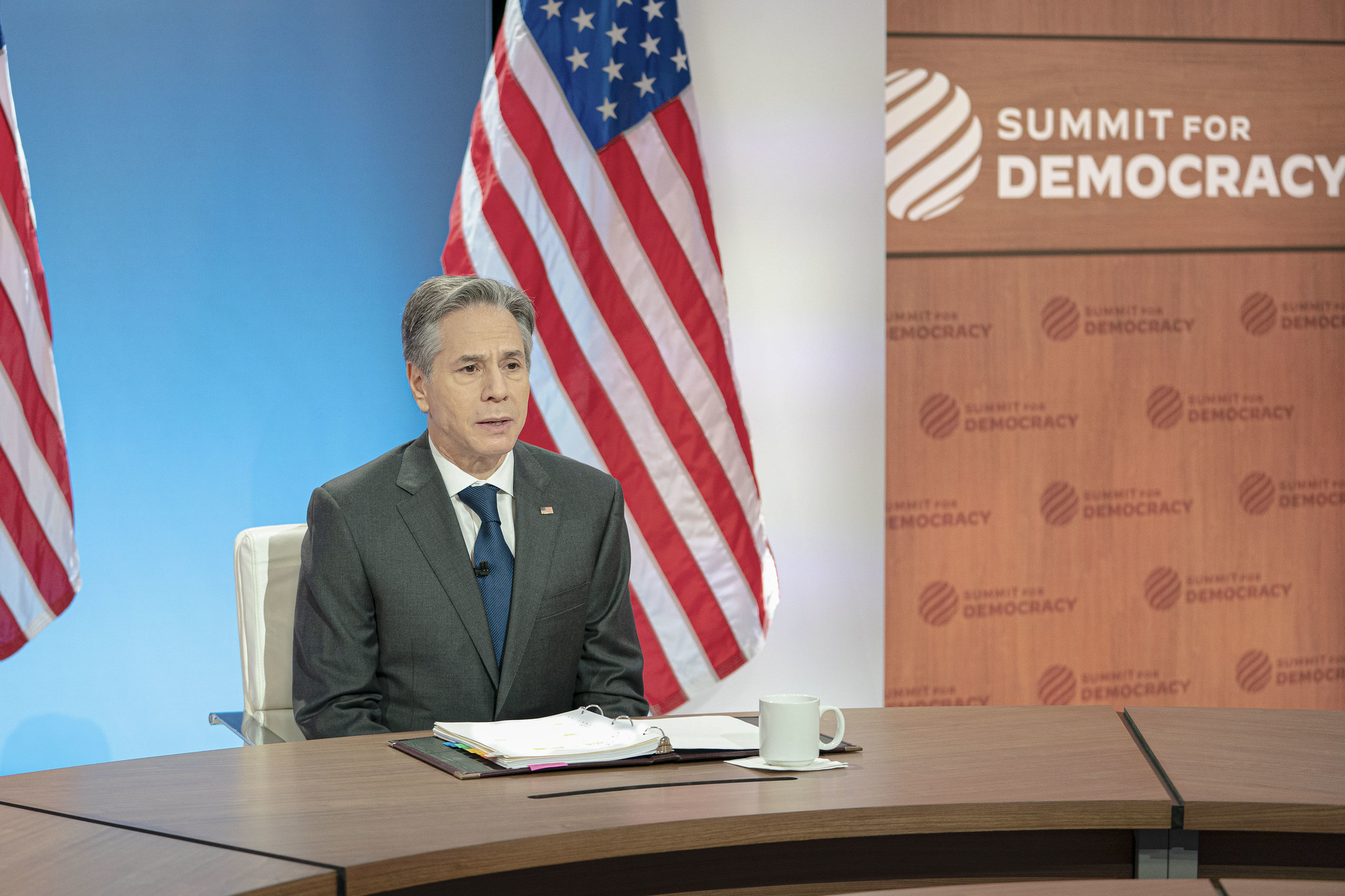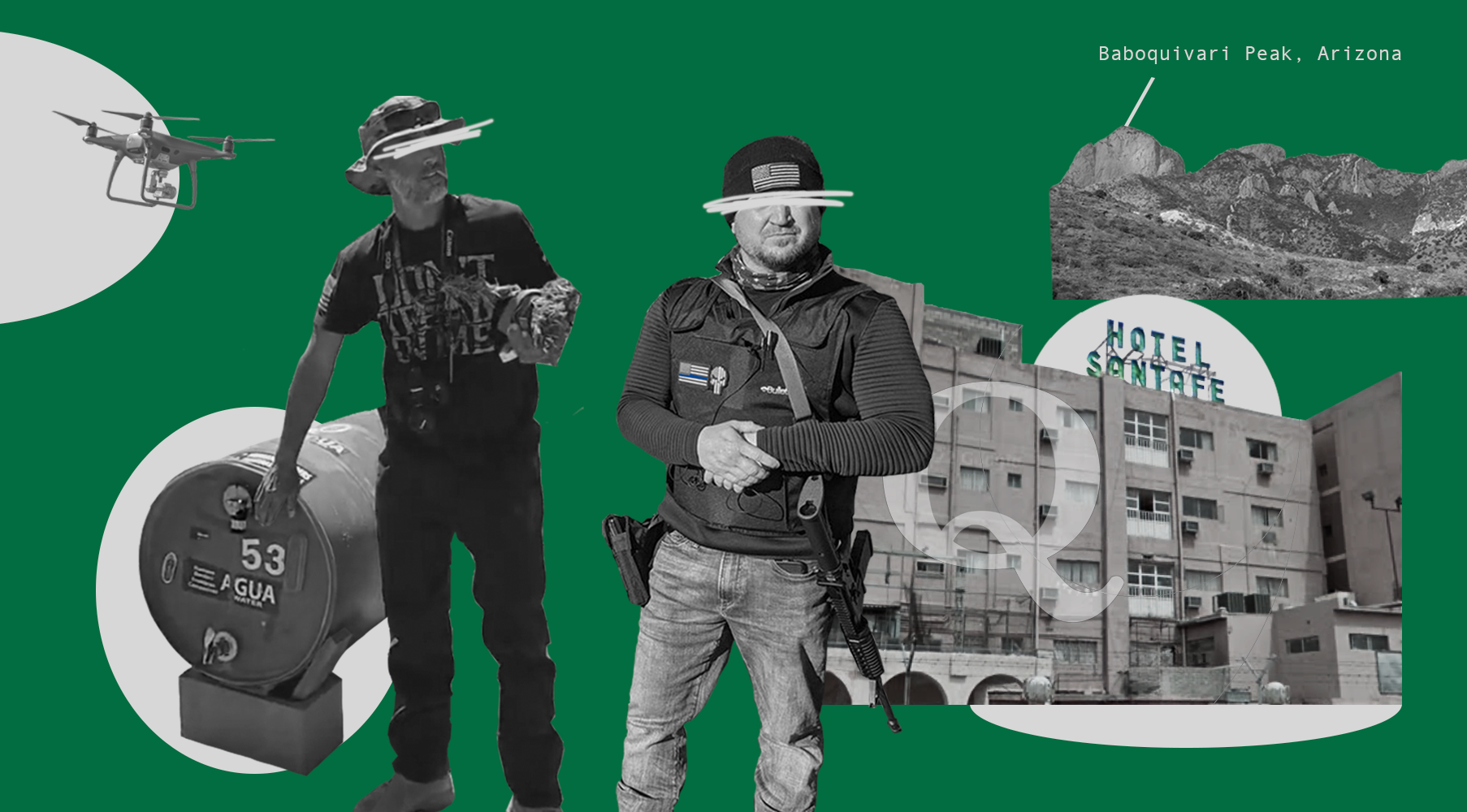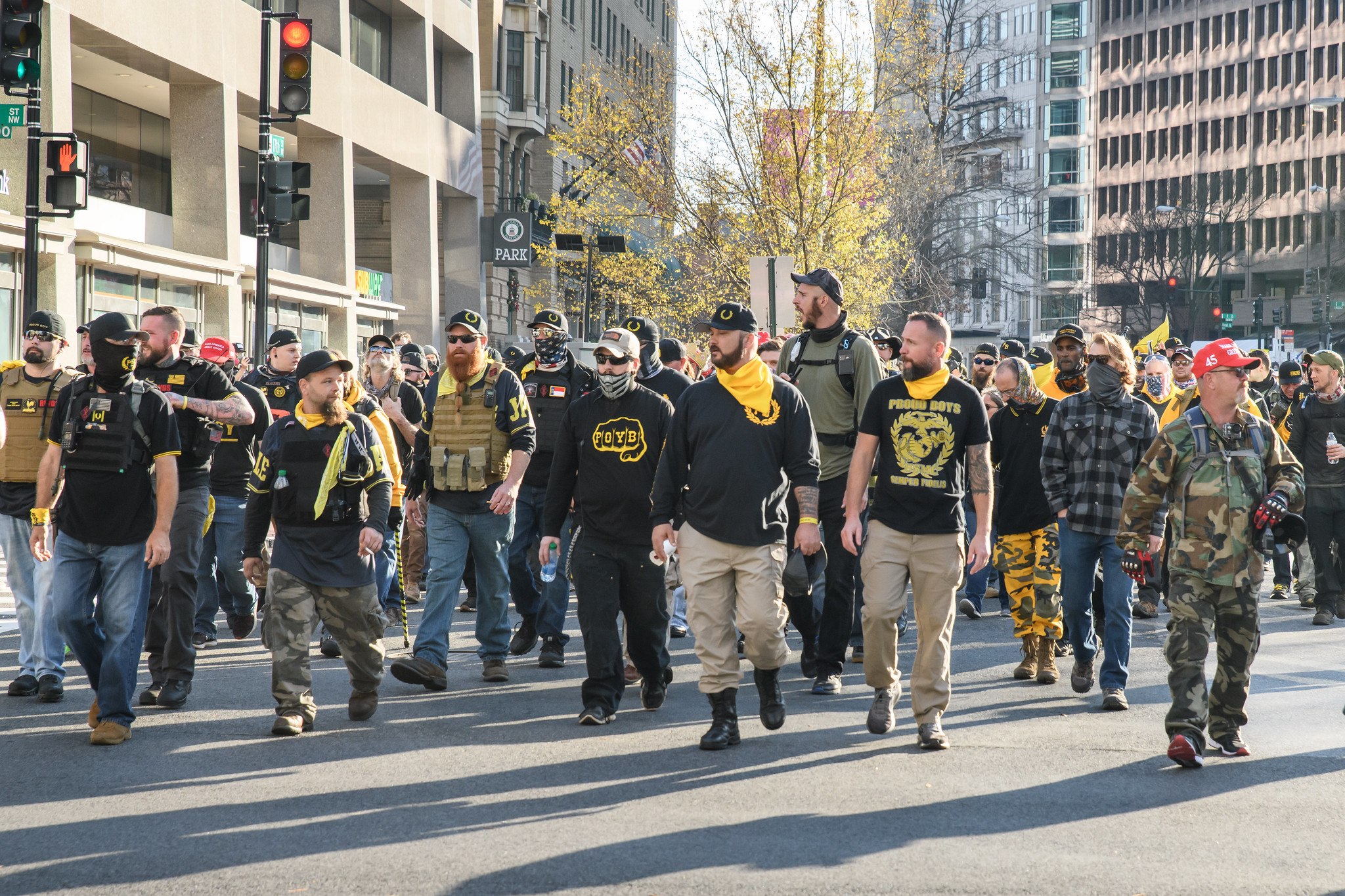Securing U.S. Democracy
If the United States intends to address the lure of authoritarianism domestically, it should devote deliberate attention to making the American people safer at home.

Published by The Lawfare Institute
in Cooperation With

With President Biden’s first democracy summit completed last week, the next steps will be continuing the dialogue the convening has generated and turning sights on implementing initiatives announced at and prompted by the conference. Given the national and international state of affairs, the summit performed a useful function by providing a high-level platform for devoting attention to the global implications of democratic decline and rallying like-minded nations around the ideals of democracy.
Globally, democracy needs bolstering, and the Biden administration has committed to reasserting a credible American diplomatic voice in support of it. As anyone who has been paying attention here at home over the past several years is aware, U.S. democracy is undergoing a substantial stress test. The latest Freedom House report warns that the United States has declined, according to its rating system, by 11 points in the past decade. In its recent report, the European think tank International IDEA included the United States among countries where democracy is backsliding. I expect this turbulence in American democracy to continue at least a few more years, perhaps through this decade.
Among other areas of democracy bolstering, last week’s summit focused on countering authoritarianism. On that first pillar, moving forward, the summit identified issues such as combating corruption, defending human rights and countering digital authoritarians as specific areas of work in the years ahead. Those global efforts are worthy and important, but if the United States intends to address the lure of authoritarianism domestically, an additional area of focus should include devoting deliberate attention to making the American people safer at home. Not only do Americans need to feel safer at home; they also need to be safer at home in their communities. And this effort to provide security needs to be undertaken in a thoughtful way that bolsters confidence in the rule of law through adherence to and respect for civil liberties and rights.
The concept of providing security to bolster confidence in a free and open society is familiar territory for those in the national security and defense communities. That a government needs to provide security for its people may sound obvious to experts of international conflict resolution, where providing security is a staple of nurturing a free and open society. But Americans are not used to thinking about techniques that have been applied abroad to bolster the United States’ civic health here at home. And yet, they must. Absent improved efforts to protect Americans from the threats that affect their lives on a daily basis, a would-be authoritarian’s chants of “law and order” will persuade some Americans that a stronger hand is needed in governing a country perceived as veering out of control.
Most of the homeland security architecture built in the past 20 years has been devoted to protecting Americans from an act of international terrorism. As a result, Americans are most certainly safer than they were 20 years ago from a terrorist attack directed or inspired by foreign groups on U.S. soil. But more significantly, the threats to American safety and security have compounded in the past two decades. Cyberattacks, wildfires, domestic violent extremism, drug addiction, pervasive gun violence, and now a pandemic have affected Americans all across the country. And these disparate threats and circumstances have challenged the effectiveness of the homeland security enterprise. Here are some examples:
- The coronavirus has killed more than 790,000 Americans since March 2020, an unfathomable, devastating national loss. While early deaths were likely unavoidable, many thousands of the deaths that occurred following the wide availability of free vaccines in early 2021 likely could have been avoided.
- Americans are being gunned down at a shocking rate. They are killed at the grocery store. They are killed in high school. They are killed at dance clubs. They are killed at outdoor concerts. They are killed in movie theaters. They are killed while jogging. They are killed in elementary school.
- American politicians and government officials are being threatened with violence at an alarming rate. From members of Congress to state legislators to local poll workers—many officials are victims of threats of violence and, in some cases, actual coordinated plots to harm them. A mob stormed the Capitol on Jan. 6, and several participants were seeking out the most senior leaders of the government for attack. Members of Congress are increasingly at risk of violence for how they might vote on an issue.
- Natural disasters spurred by a changing climate are drowning city dwellers in their basements and rural neighbors in their homes. Fires are wiping out western towns. Just this weekend, tornadoes tore through the midwest, destroying lives, livelihoods and entire towns.
- Americans are also killing themselves quietly. More than 100,000 people overdosed on drugs this year, fueled by fentanyl and other opioids.
It is impossible to prevent or end all of these dangers, but with the United States’ plentiful resources, well-developed homeland security institutions, and expansive capabilities, the U.S. should be able to manage these challenges better without American citizens living in a constant state of crisis. A modern society simply can’t be fearful all the time and continue to have confidence that its government is delivering on its promises.
A variety of democracy-supporting activities are currently underway to address some of the deficiencies in the U.S. political processes. On the legislative front, attention and advocacy is focused on election administration, voting rights and bolstering congressional authority. Just last week, the House passed the Protecting Our Democracy Act, a bill intended to recalibrate the co-equal branches of government. Each of these legislative efforts will improve the functioning of U.S. democracy, if they are enacted.
But aside from those important efforts, I wish to focus here on the need for greater attention to safety and security as a component of shoring up the United States’s stressed-out democracy. I could come up with a much broader agenda, but, for now, here are three places to start in order to better secure U.S. democracy:
First, at the federal level, it’s time for Congress to update the statutory mission of the Department of Homeland Security. In order for the Biden administration and future administrations to effectively develop strategic plans for the homeland security enterprise, they need to be freed of the tether to the early-21st-century menace of international terrorism. While an international terrorism threat remains, the reality is that the scope of homeland security threats the country currently faces are much more broad. A modern departmental mission, and the accompanying flexibility in budgeting, operations, and grant-making that a modernized mission will bring to the department’s leadership, is critical.
In addition, from the federal government to local police departments, the U.S. needs to address the growth of domestic violent extremism. The Biden administration’s first-ever National Strategy for Countering Domestic Terrorism is a start. But countering the threats posed by domestic terrorists includes the hard work of rooting out extremism from the military, veteran and law enforcement communities. These communities are being deliberately targeted for recruitment by domestic extremist groups. Academics and civil society can contribute to this effort by investigating the root causes of this trend, and providing a road map for countering it. U.S. citizens cannot feel safe if they assess that those charged with protecting them are members of or sympathetic to groups spreading extremist ideology and encouraging lawless violence. And U.S. citizens will not be safe unless the country collectively renews its respect for law enforcement as a profession and law enforcement officers as public servants.
Further, the U.S. should devote attention and work toward bolstering collaboration and safety among federal, state and local government partners to facilitate homeland security activities that are based on expertise and are bipartisan, to the extent possible. The experience of the 2020 election demonstrated how important it was to the continuity of the electoral process that there were credible, bipartisan messengers who provided accurate information about the conduct and cybersecurity of election infrastructure and systems. Without both bipartisan engagement and nonpartisan expert election officials, harmful and false domestic political rhetoric and misinformation could have prevailed. It is vital that state and local officials who are experts in areas such as elections—and also public health, emergency response and public safety—are supported, protected, valued and amplified. These experts need to be able to do their work without threat of violence against them and their families. As government and civil society policy discussions take place to improve coordination and counter political violence, they need to include police and other law enforcement unions and professional associations. Some of these organizations have become increasingly partisan and divisive, which is counterproductive to the interests of their members, constituencies and communities.
These recommendations are far from comprehensive, but they can help launch a renewed effort to secure U.S. democracy. Each is important to reframing U.S. domestic security and public safety needs as central to the functioning of the nation’s democratic system. The fundamental national security and homeland security threat to the United States in the present era is the decline of American democracy. Coordinated, strategic national and homeland security efforts should more deliberately address security and safety as a function of preserving and protecting American democracy.


-final.png?sfvrsn=b70826ae_3)


